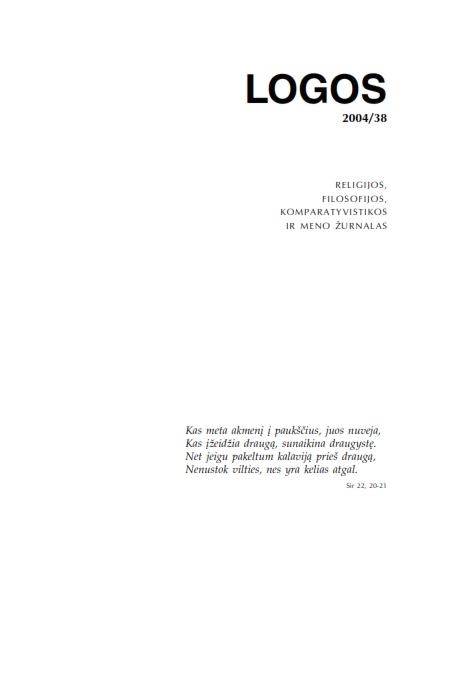Abstrakcija ir įsijautimas W. Worringerio menotyros koncepcijoje
The Concepts of Abstraction and Empathy in W. Worringer’s Theory of Art Criticism
Author(s): Antanas AndrijauskasSubject(s): Fine Arts / Performing Arts, Aesthetics, Methodology and research technology, History of Art
Published by: Visuomeninė organizacija »LOGOS«
Keywords: W. Worringer; history of art; methodology of art critique; abstraction; empathy; artistic will;
Summary/Abstract: In this article the art criticism theory of the influential German art historian Wilhelm Worringer (1881-1965) is considered. The main attention is focussed on the origin of the concepts of abstraction and empathy and on the methodology of their application. The anti-classical attitudes and rejection of Eurocenristic stereotypes in the analysis and assessment of pieces of art are concisely presented. The relatedness of Worringer’s theory to psychological aesthetics and to A. Riegl’s and K. Fiedler’s ideas is shown. Special attention is paid to the historical classification of art into primitive, classical and Eastern.
Journal: LOGOS - A Journal of Religion, Philosophy, Comparative Cultural Studies and Art
- Issue Year: 2004
- Issue No: 38
- Page Range: 163-172
- Page Count: 10
- Language: Lithuanian

